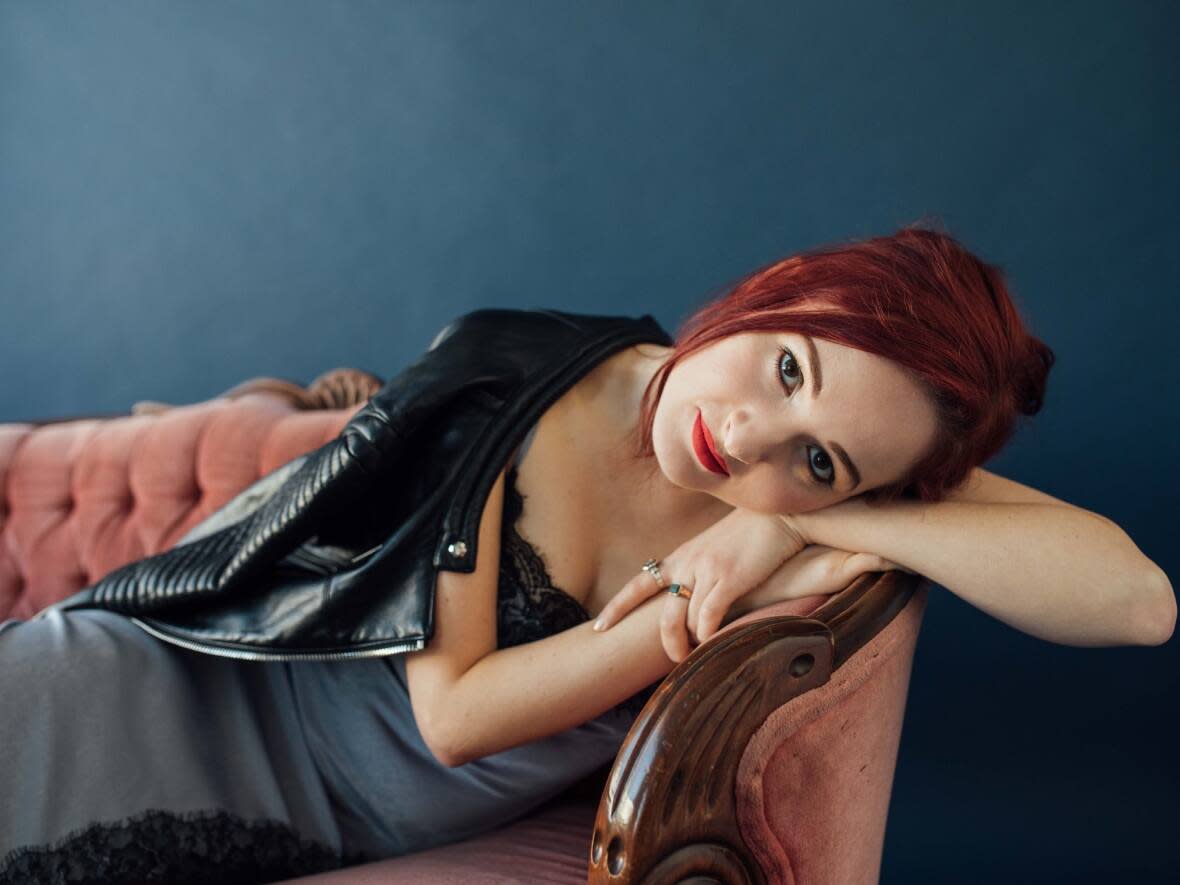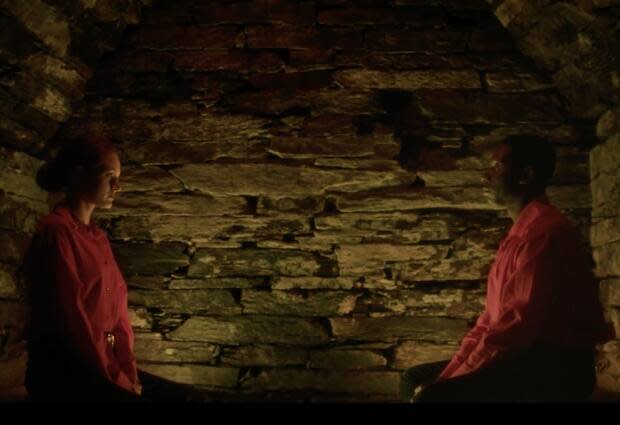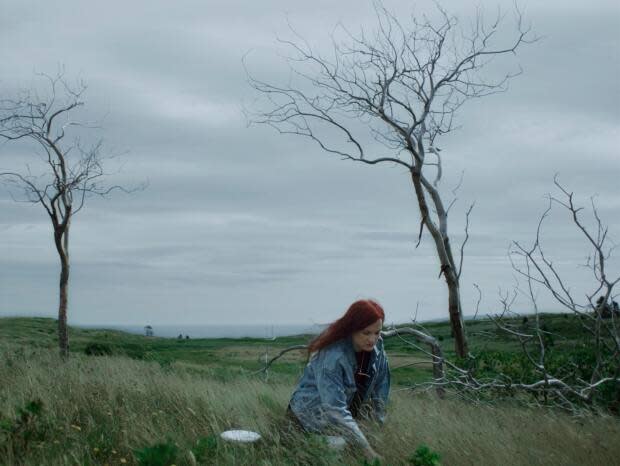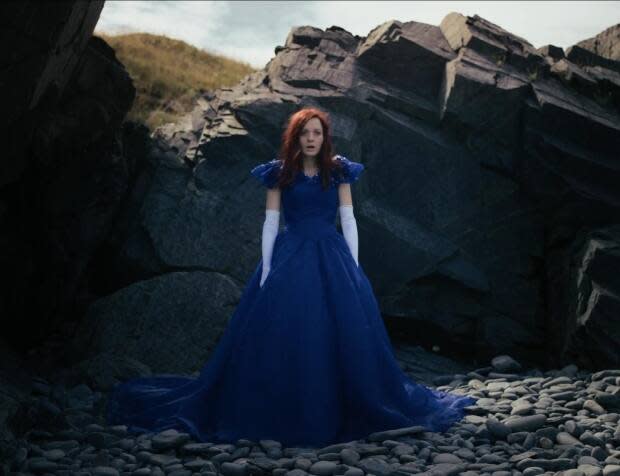In her new short film, Zoe Cleland tells the truth about fairies and root cellars


Zoe Cleland says her biggest disappointment when she filmed her debut film, Blueberries for Iris, is that there was no foggy weather in Bradley's Cove, Conception Bay. She shot the atmospheric short film in the resettled community by Western Bay, a place she knows intimately.
"I remember going for walks where it was so foggy that you couldn't see a foot in front of you," she says. "There's a silence that descends, and you feel like, 'Who else is out here?'"
The 31-year-old Toronto-based actor/producer has felt a connection to Bradley's Cove since her mother, author Charis Cotter, moved to Western Bay when Cleland was a teenager.
"Being a city girl, it was such a magical experience. I would go for hours with a book and some food and laze around on the grass out there," she says. "I knew that I wanted the story to have a dark edge that was rooted in reality."
Cleland says her primary inspiration for Blueberries for Iris was the landscape, which she describes as "incredibly majestic, kind of wild."

The fact that it is now the abandoned site of a resettled community adds to its mystique.
"Bradley's Cove was a town. There was a church, there was a schoolhouse, there were houses."
What remains now are the 200-year-old root cellars, some traces of foundations, and "a set of stairs that just go up and lead nowhere."
She shot some scenes inside the old root cellars.
"We had a whole film crew in there. We had my [director of photography], who had the huge camera on his shoulder filming us. We had the actors, the lighting people, the sound guy with the boom, all in that space."
Trauma and fairy lore
In Blueberries for Iris, she wanted to create "a story about a woman going out and getting lost" in a place where magic and imagination intermingle with danger. Cleland says the landscape in Bradley's Cove evoked ideas of Celtic fairy tales she's heard, but she wanted to use those stories in a different way.
"So many of those fairy stories, they were told as a way to warn women not to go out on your own and not to trust men who approach you when you're on your own."
Cleland says she wanted Blueberries for Iris to push back against the morality implied in traditional fairy stories.
"You hear stories of people being abducted by the fairies, and they come back, and they can't speak and can't eat. Essentially, they're traumatized."

Truth in storytelling
The film's main character, Iris, has a supernatural experience while picking blueberries, which forces her to face a traumatic event that happened in her real life.
"I'm hoping that anybody that's experienced profound trauma will be able to relate to what Iris goes through," she says. "I had so many people on the crew who came to me and shared things that had happened to them. And people seeing the film who responded by sharing their own stories."
Cleland says she's come to view her writing as a means of inviting people to engage in difficult conversations.
"If there's anything that comes out of this film, it's that I want people to feel less shame around how they may view their own experience."

Creative collaboration
Cleland has appeared in multiple television and movie roles, most notably that of Tatiana in The Communist's Daughter, for which she received a Canadian Screen Award nomination. She likens the experience working on the CBC Gem series to that of working on her own production.
"The passion that people have when they're making their own original content, it just gets my creative juices flowing."
For Blueberries for Iris, she drew on the collaborative efforts of her cast and crew.
"My background is as an actor, and my philosophy around actors, is that they are full-on artists, that we should interact with them as artists, rather than like puppets to just do our bidding."
She credits the male lead, Thomas Antony Olajide, for his collaboration. "I'm really grateful for that, because he added so much to the film by my letting him in on the process."
Cleland raves about the support she and her production partner, Katherine Wilson, received from Newfoundland actor Ruth Lawrence, who played the mother in this film. "She just took us on, mentoring our whole production. She's the person that made all of this happen."
What's next for Zoe Cleland?
"I've been an actor since I was 15, and I finally feel like I'm stepping into my creative power as an artist." Cleland continues to work as an actor but believes she has found a sense of agency — and a sense of calling — in her work as a writer and producer. "I'm now on a path of making my own work, and I realize how passionate I am about it."
Blueberries for Iris, produced by Sweet Sorrow Productions and Blue Pinion Films, stars Zoe Cleland, Thomas Antony Olajide, Ruth Lawrence, Pat Dempsey and Ella-Sophie Dölle. Look for it on the film festival circuit this year.


